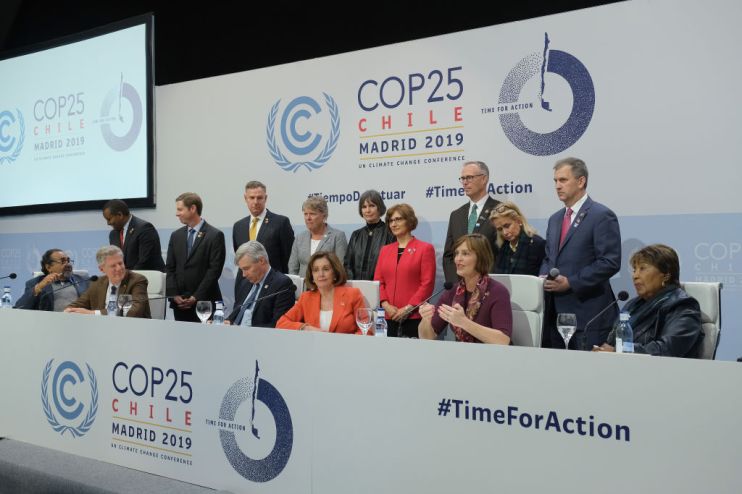UN climate change summit opens in Madrid amid last chance warnings

The UN Climate Change conference is underway in Madrid, as governments come together to take the next steps in the climate change process.
Against a backdrop of a year of especially severe weather, the two weeks of talks offer delegates the chance to resolve outstanding issues from the Paris accord, such as rules for carbon trading.
Read more: TCI threatens investors over climate change as pressure mounts on sector
Covered under article six of the Paris agreement, this mechanism would allow countries with low emissions would be allowed to sell their remaining emissions allowance to larger emitters, within an overall emissions cap.
Speaking at the summit’s opening session, UN secretary-general Antnoio Guturres said that governments risked sleepwalking past a point of no return.
He said: “Do we really want to be remembered as the generation that buried its head in the sand, that fiddled while the planet burned?”
According to the latest research from the UN environment programme, unless greenhouse gas emissions fall 7.6 per cent each year for the next decade, the world will miss its chance to limit the global temperature rise to Paris targets.
On current pledges and commitments, the world is headed for a 3.2 degree rise.
Nations are required to submit updated climate actions plans – nationally determined contributions (NDCs) – at next year’s summit in Glasgow.
Read more: European parliament declares worldwide climate emergency ahead of UN conference
According to Patricia Espinosa, executive secretary of UN climate change, current NDCs are inadequate:
“It’s achievable, but to stabilise global temperature rise by 1.5 celsius by the end of this century, we need to reduce emissions 45 per cent by 2030 and achieve climate neutrality by 2050.
“It’s an extremely difficult challenge, but meeting it is absolutely necessary to the health, safety and security of everyone on this planet—both in the short- and long-term.”
The beginning of the conference has met with a raft of papers from industry bodies on business’ response to the crisis.
RE100, a collaborative initiative bringing together businesses committed to 100 per cent renewable power, said that its membership had grown by over a third in the last year, with its membership now numbering over 200 companies.
Ralph Lauren was the latest company to announce membership, setting a target of 100 per cent renewable electricity by 2025.
Read more: No emissions peak in sight as greenhouse gas levels hit record high in 2018
A third of the scheme’s members have already reached 75 per cent renewable energy.
In a similar vein, Investec’s Planetary Pulse survey showed that the majority of British adults want to see their green ambitions translated into investment action.
The vast majority – 82 per cent – of those surveyed said that they were likely to invest in environmentally-focused funds, provided it were possible to make competitive returns from them.
Finally, Unfriend Coal said that 17 of the world’s largest insurers, controlling 46 per cent of the reinsurance market and 9.5 per cent of the insurance, had announced coal exit policies.
As the summit began National Grid announced that it had joined a call from over 70 companies, chief executives and union leaders asking the US to stay in the Paris agreement.
Chief executive John Pettigrew said: “The scale and potential impact of the climate crisis has never been more real. At National Grid, we know we have a critical role in the acceleration towards a cleaner future and are committed to playing our part.
Read more: Global emissions must be cut 7.6 per cent a year to meet Paris targets
“The promise of the Paris Agreement is one of a just and prosperous world – something that can only be achieved through a collective effort of business, unions and governments that places climate action at the heart of everything we do.”
Co-signees include the chief executives of Google, Virgin, Tata, Apple, Disney, Coca-Cola, Adidas, and Shell, amongst others.